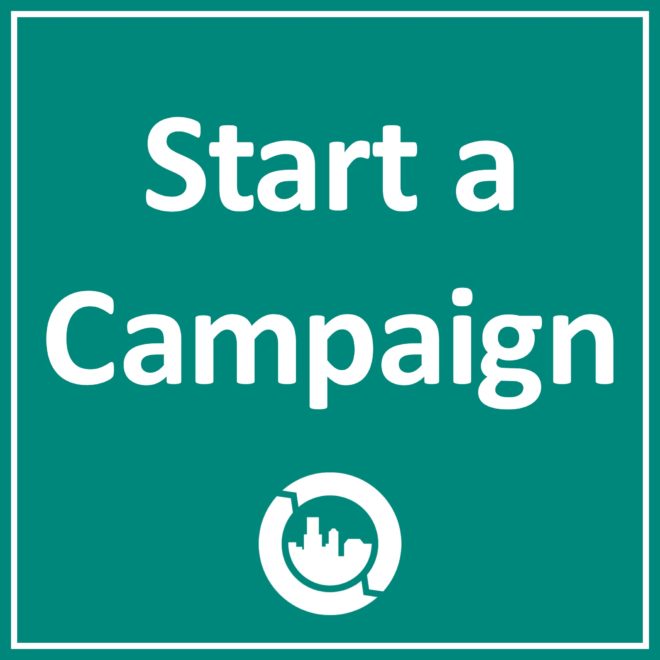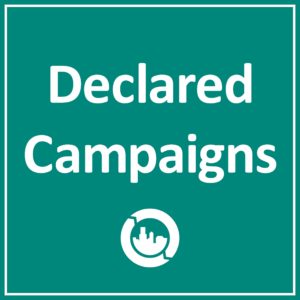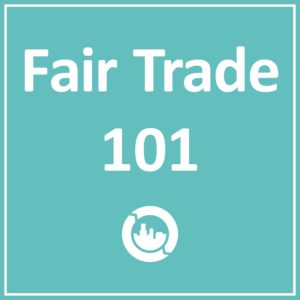Day 5 at FEDECARES: The Tastiest Bean
In March, Fair Trade Towns USA sent 12 volunteer organizers on a 7 day learning tour of Fair Trade farms in Dominican Republic. The travelers came from town and city campaigns all over the country to see the effects of their hard work visiting cocoa, coffee and banana farms, as well as a sweat-free apparel factory. This series chronicles the trip through the eyes of a different organizer each day. This blog post comes to us from Dana Emanual of Chicago Fair TradeThe Inherent Quality Controls of Fair Trade Certified Products

Ramona demonstrating the coffee cupping and quality tasting process at the FEDECARES Coffee Cooperative’s National Offices
Ramona Cesarina Encarnacion slurps, swishes and spits her 130 degree coffee in a humid, warm room of the FEDECARES coffee cooperative’s national offices in San Cristobal, Dominican Republic. Director of the FEDECARES Coffee Lab, Ramona is an agronomist college degree was financed by the education scholarship offered through her family’s membership in the ASOCAEZ Coffee Association.
One of 40 FEDECARES recipients of such educational scholarships funded by Fair Trade social premiums, Ramona gives us our own education on coffee during our Fair Trade Towns visit to the Coffee Lab. She teaches us about “cupping,” the process of determining attributes and qualities of different coffees.
Fair Trade guarantees many things for growers worldwide: a fair minimum price and social premiums, technical assistance, environmental protections, transparent cooperative structures, and no forced child labor. Consumers trust the Fair Trade label to uphold these standards, but there is one major attribute that is not included in Fair Trade Certified products – quality.
Visiting Fair Trade cocoa and coffee cooperatives in the Dominican Republic clearly illustrates that that this is a myth; there are many inherent quality controls in the production of Fair Trade Certified items, and consumers in the US who buy Fair Trade take home delicious, high quality coffee and chocolate that also empowers producers abroad.
Quality control is essential for any business to succeed, and Fair Trade products are no exception. The 7,500 small holder coffee farmers of FEDECARES know this; they will not be able to sell their beans and sustain themselves if the quality of their beans are not the very best. Ramona at FEDECARES knows this, too, and goes so far to request defective samples from rural farmers “to determine ways to improve” the quality of such beans. Indeed, every coffee sample from FEDECARES is cupped by five different expert tasters within the organization before it is sent to the Dominican Coffee Council, a mandatory governmental tasting body for export coffee.
Hector Romero,our tour coordinator at the Grupo CONACADO, knows the importance of good quality, too. We learned about the precise steps CONACADO takes to ensure the best quality cocoa is exported to international buyers. Beans are fermented in 3 separate marked boxes for 72 hours, then moved to huge greenhouses to dry. Updated worksheets are posted on every fermenting box and in every drying room, indicating the particular quality and stages of the beans.

Romero discusses the fermenting boxes. Cocoa beans must ferment in three boxes for 72 hours to fully develop their deepest flavors and nuances.
Romero demonstrates a humidity monitor machine, which tests the drying cocoa beans to ensure they achieve a 7% internal humidity level. He shows us the guillotine, a simple mandolin-like apparatus that cuts into samples of drying cocoa beans to ensure that mold and pests are not problematic. No more than one out of 50 beans can be imperfect, Romero tells us, if more than that, the entire batch drying must be discarded.
Romero holds the “guillotine” apparatus, which tests the drying cocoa beans to ensure quality is up to par: CONACADO discards entire batches of drying cocoa beans if there is any signs of mold or insects.
“Farmers are conscious of the reality,” says Romero. He explains that CONACADO’s 10,000 cocoa farmers know that the quality of their beans directly impacts the amount they can sell. These farmers grow and harvest their beans with this core value in mind. Beans not meeting CONACADO’s quality standards are not sold to Fair Trade cocoa buyers; there is a clearly-marked separate drying facility for these non-Fair Trade beans.

Romero holds the “guillotine” apparatus, which tests the drying cocoa beans to ensure quality is up to par: CONACADO discards entire batches of drying cocoa beans if there is any signs of mold or insects.
Fair Trade farmers and cooperatives in the Dominican Republic monitor and improve the quality of their products at every step of the growing, harvesting, drying and production process. Savvy and intuitive, these farmers know that they must offer the best quality products possible to sell their products and bring in repeat business.
Fair Trade certification guarantees that producers receive economic and social benefits for their products. But consumers can also confidently buy Fair Trade products for the high quality of the products in and of themselves. Just look to Ramona at FEDECARES for this vote of confidence: despite cupping between 10-35 samples of coffee per day for her job at FEDECARES, she loves the taste of FEDECARES coffee so much that she indulges in an additional 8 full cups of the coffee a day.





You must log in to join the discussion. If you are not already a member registering is easy.